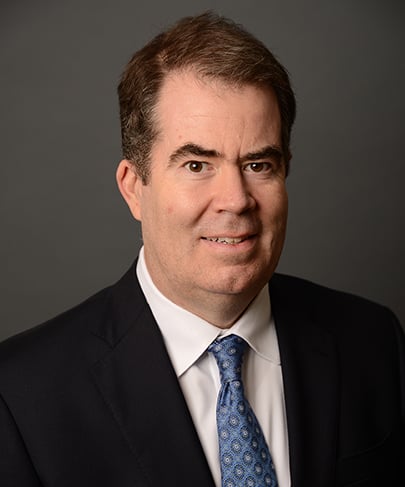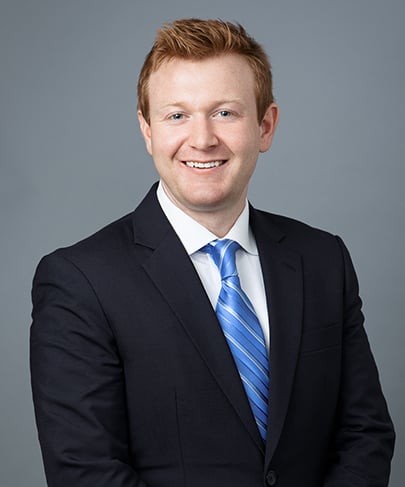Federal Trade Commission Proposes Rule to Ban Non-Compete Clauses | 連邦取引委員会による競業避止条項の禁止に関する規則の提案
DOWNLOAD PDF- Beemer, Jeffrey M. Kelly, Collin Masterson, Patrick J. Zinn, L. Pahl
- Industry Alerts
Click “Subscribe Now” to get attorney insights on the latest developments in a range of services and industries.
On January 5, 2023, the Federal Trade Commission (“FTC”) issued a notice of proposed rulemaking (“NPRM”) to ban the use of non-compete clauses with all workers. Although not yet enforceable, the proposed rule marks a dramatic departure from the current regulatory landscape, which is primarily dictated by state law. A non-compete clause is a contractual term that prohibits an individual from competing against the other party—either by working for or starting a competing business—for a certain period within a given geographic area. If finalized and enforced as-is, the proposed rule’s categorical prohibition of non-compete clauses would set a national standard, resulting in the preemption of the vast majority of states’ current regulation of non-compete clauses and abrogating decades of case law.
2023年1月5日、連邦取引委員会(FTC)は全ての労働者との競業避止義務契約を禁止する規則案(規則案)に関する通知を発表しました。現時点では執行可能とはなっておりませんが、この規則案は、主に州法で規定されている現在の競業避止義務に関する規制状況からの劇的な脱却を意味する内容となっています。競業避止義務とは、ある地域内で一定期間、競合他社で勤務をしたり自ら競業するビジネスを実施することを禁止する契約上の内容です。この規則案がそのまま最終的に決定され、施行された場合には、競業避止義務を課す条項の包括的な禁止が国家基準となるため、大多数の州における現在の競業避止義務契約の禁止に関する規制が無効となり、数十年にわたる判例も破棄されることになります。
The Proposed Rule’s Significance
提案された規則案の意義
As written, the proposed rule would declare non-compete clauses an unfair method of competition for an employer to enter into or attempt to enter into with a worker. The proposed rule broadly defines non-compete agreements as “a contractual term between an employer and a worker that prevents the worker from seeking or accepting employment with a person or operating a business after the conclusion of the worker’s employment with the employer.”
この規則案は、雇用主が労働者と締結、または締結しようとする競業避止義務契約を不公正な競争方法と宣言する内容となっています。規則案は競業避止義務について、「雇用契約終了後、労働者が雇用主以外の個人からの雇用を求めるまたは雇用を受け入れることや、雇用契約終了後のビジネスを妨げる契約条項」と、広く定義づけています。
Generally, other restrictive covenants, such as non-disclosure agreements and non-solicitation agreements, are not prohibited under the proposed rule. While most would assume this would mean that employers could still contract with employees to ban them from soliciting clients, customers, and employees, the proposed rule deploys a functional test to determine whether a specific covenant is a non-compete clause. Meaning even non-solicitation provisions could come within the scope of the NPRM because the NPRM aims to ban any agreement that has “the effect of prohibiting the worker from seeking or accepting employment with a person or operating a business after the conclusion of the worker’s employment with the employer.”
一般的に、秘密保持契約や勧誘禁止契約といった、他の制限条項については当該規則案では禁止されていません。したがって、多くの人は、雇用主が従業員との間で、クライアントや他の従業員への勧誘を禁止する契約は締結可能と考えるかもしれません。もっとも、規則案には、特定の契約条項が規則案で禁止される競業避止義務に該当するかを判断する、いわゆる機能テストが含まれています。すなわち、規則案は「雇用契約終了後に、労働者が雇用主以外の個人からの雇用を求めるまたは雇用を受け入れることや、雇用契約終了後の事業運営を禁止する効果を有する」契約条項を禁ずることを目的としているため、場合によっては勧誘禁止に関する条項も当該規則案によって禁止される可能性があります。
For example, the NPRM identifies a non-disclosure agreement written so broadly to effectively preclude the worker from working in the same field after the conclusion of the worker’s employment with the employer as a functional non-compete that would violate the proposed rule. The proposed rule also prohibits contractual terms between an employer and a worker that requires the worker to reimburse the employer or a third party for training costs if the worker’s employment terminates within a specified time in situations where the payment is not reasonably related to the expenses the employer incurred to train the worker.
例えば、規則案は、雇用契約終了後に労働者が同じ分野では働くことを事実上妨げるような秘密保持契約(範囲が広範な秘密保持契約)については、本規則案に違反すると認定しています。また、規則案では、雇用主が労働者のトレーニングのために支出した費用と合理的な関連性がない限り、雇用契約が一定期間内に終了した場合において、当該トレーニング費用を弁済するよう求める雇用主と労働者間の契約条項は禁止されています。
Further extending the proposed rule’s scope, the ban on non-compete clauses would apply to all workers. “Worker” is broadly defined as “a natural person who works, whether paid or unpaid, for an employer” and expressly includes, without limitation, “an employee, individual classified as an independent contractor, extern, intern, volunteer, apprentice, or sole proprietor who provides a service to a client or customer.” Because the ban on non-compete clauses is categorical, the proposed rule treats all workers the same, no matter the worker’s salary or position within the business.
さらに、規則案では適用範囲が拡大されており、競業避止義務契約の禁止は全ての労働者について適用されることになります。「労働者」とは、「有給、無給を問わず、雇用主のために働く自然人」と広く定義づけられており、「従業員、独立契約者、外部実習生、ボランティア、見習い、クライアント等にサービスを提供する個人事業主」等が明示的に含まれています。競業避止義務契約の禁止は絶対的なものとなっているため、規則案では給与や地位にかかわらず、全ての労働者を同様に取り扱っています。
Although the scope of the proposed rule is extensive, there are two notable exceptions. First, a non-compete clause may still be used to prevent a person from selling a business, selling all of the person’s ownership interest in the industry, or selling all or substantially all of the operating assets of a business from competing with the purchasers of the business. For this exception to apply, the restricted party must be an owner, member, or partner holding at least 25% ownership interest in the business entity. Second, the term “worker” does not include a franchisee in a franchisor-franchisee relationship.
この規則案は広く適用される内容となっていますが、注意するべき2つの例外が存在します。第一に、事業が売却される場合、業界内の資産に関する個人の所有権が全て売却される場合、事業に関する営業資産の全て(または実質的に全てといえる場合)が売却される場合において、当該売主がその事業の購入者と競合する事業を事業売却後に行うことを防ぐために、競業避止義務契約を利用することは可能です。この例外は、競業避止義務を課される当事者が事業体の少なくとも25%の所有権を有するオーナー、メンバー、またはパートナーである必要があります。第二に、「労働者」の定義には、フランチャイズ契約のフランチャイジーは含まれません。
If the NPRM goes into effect, it will prohibit an employer from:
(1) entering into or attempting to enter into a non-compete agreement with a worker;
(2) maintaining a non-compete agreement with a worker; or
(3) representing to a worker, under certain circumstances, that the worker is subject to a non-compete agreement.
仮に、当該規則案が施行された場合、雇用主による以下の行為が禁止されます。
1) 労働者と競業避止義務契約を締結すること、または締結しようとすること
2) 競業避止義務を含む労働者との契約を維持すること
3) 特定の状況において、労働者に対し、競業避止義務が課せられることを表明すること
The proposed rule would require employers that entered into a non-compete clause with workers before the rule’s compliance date to rescind those non-compete clauses. Compliance with the proposed rule would also require an employer to provide written notice to its workers that the rescinded non-compete clauses are no longer in effect and may not be enforced against the workers.
The proposed rule would also supersede any inconsistent state statute, regulation, or rule, unless that state statute, regulation, or rule affords workers greater protections. Thus, the proposed rule would create a national regulatory floor while allowing states to provide additional protections for workers.
この規則案では、競業避止義務を含む契約を施行日(規則の遵守開始日)より前に労働者と締結した雇用主に対しても、その競業避止義務に関する条項を取り消すよう求めています。この規則案を遵守するためには、競業避止義務に関する条項は無効であり、労働者に対して強制できない旨を書面で労働者に通知することが求められます。加えて、この規則案と矛盾する州法、規則、その他法規が存在する場合、それらの州法等が労働者に対して多大な保護を与えていない限り、この規則案が優先されます。したがって、規則案は、国家的な規制基盤を生み出す一方で、州が労働者のために追加的な保護の提供を可能にするものでもあります。
The Rulemaking Process and Expected Challenges
規則制定のプロセスと想定される課題
While the substance of the proposed rule provides a dramatic departure from the current regulatory landscape, it is not yet enforceable. The NPRM is just an initial step in the rulemaking process. The FTC will soon publish the NPRM in the Federal Register, which will trigger a 60-day public comment period. The NPRM invites public comment on specific questions, including whether franchisees should be covered in the definition of “worker” under the rule, low-and high-wage workers should be treated differently under the rule, and whether senior executives should be exempted from the rule.
この規則案は、競業避止義務に関する現在の規制状況に劇的な変化をもたらす内容となっていますが、まだ強制力はありません。この規則案の発表は最初のステップに過ぎず、FTCはまもなく当該規則案を連邦官報に掲載し、60日間のパブリックコメント期間を設ける予定です。具体的に、当該規則案では、フランチャイズ加盟者を「労働者」の定義に含めるべきか、低賃金労働者と高賃金労働者との間で異なる扱いを認めるべきか、上級管理職を適用範囲外とするべきかなどといった項目について、パブリックコメントを募集する予定です。
Following the notice-and-comment period, the FTC will publish a final rule. The final rule could differ from the proposed rule based on the received public comments. After the final rule’s publication, employers will have 180 days to rescind current non-compete clauses and provide the required notice to workers. Upon the expiration of the 180-day compliance period, the FTC could commence enforcement.
規則案に関する官報への掲載及びパブリックコメント募集期間が終了した後、FTCは最終的な規則を公表します。寄せられたパブリックコメントに基づき規則案が変更される可能性があるため、最終的な規則は現在の規則案と内容が異なる可能性もあります。最終的な規則が公表された後、雇用主は180日以内に競業避止義務を取り消し、労働者に対して必要な通知を行うことが求められます。180日間の期間が経過した後、FTCによる最終的な規則の執行が可能となります。
However, the proposed rule could face delays beyond the rulemaking process. Any final rule is expected to face intensive legal challenges. These legal challenges primarily center around whether or not the FTC possesses the authority to impose such a sweeping regulation of non-compete agreements in the employment setting.
しかしながら、今回公表された規則案の最終的な施行までには遅れが生じる可能性もあります。最終的な規則については、その法的効力について、徹底した異議申立てに直面することが予想されます。具体的には、雇用環境における競業避止義務契約について、FTCがそれを広く規制する権限を有しているのかといった点が争点になると考えられます。
Immediate Considerations for Employers
雇用主に対する当面の配慮事項
Although the proposed rule is not yet finalized or enforceable, there are immediate actions employers can take to prepare for the changing regulatory landscape. First, concerned parties may submit vigorous comments explaining the potential costs and adverse effects of the proposed rule on their business. In encouraging stakeholders to submit a public comment, Commissioner Christine S. Wilson emphasized in her dissenting statement regarding the NPRM that “this solicitation for public comment is likely the only opportunity they will have to provide input not just on the proposed ban, but also on the proposed alternatives.”
この規則案はまだ未確定であり、施行されるかもわかりませんが、規制の変化に備えて現時点で雇用主がとり得るステップもあります。まず、当該規則案によって影響を受ける関係者は、当該規則案がビジネスに及ぼす潜在的なコストや悪影響について、精力的にコメントを提出することが考えられます。Christine S. Wilson委員は、当該規則案への反対意見を表明しておりますが、その中で「パブリックコメントの募集は、当該規則案に関する意見のみならず、代替案についても意見を提出できる唯一の機会であろう」という点を強調し、パブリックコメントの提出を促進しています。
Employers also can review their existing agreements with workers to assess their exposure to the proposed rule. That review should account for all restrictive covenants, including non-disclosure agreements and nonsolicit agreements, to assess whether such covenants effectively preclude the worker from working in the same field after the conclusion of the worker’s employment with the employer, therefore operating as a functional non-compete that would violate the proposed rule.
また、雇用主は、労働者との既存の契約を見直し、当該規則案による影響について評価することも可能です。この見直しに当たっては、秘密保持契約や勧誘禁止契約を含む全ての制約的な契約内容を考慮し、そのような契約内容が労働者が雇用契約終了後に同じ分野で働くことを事実上排除することになるのか、すなわち規則案が禁止する競業避止義務として機能するものなのかを評価する必要があります。
Dickinson Wright attorneys closely monitor the FTC’s actions regarding its regulation of employers’ dealings with their workers and are available to discuss how these regulations could impact your business. Additionally, Dickinson Wright attorneys stand ready to assist in preparing a public comment for submission on this proposed rule.
ディキンソンライト法律事務所では、雇用者と労働者と契約の規制に関するFTCの動向を注意深く監視することで、これらの規制がビジネスに及ぼす影響についての相談に対応することが可能です。また、当該規制案に対するパブリックコメントの提出準備についてもサポートいたします。
Related Practices
Recent Insights
- Industry Alerts Federal Trade Commission Proposes Rule to Ban Non-Compete Clauses | 联邦贸易委员会提议禁止竞业禁止条款
- Industry Alerts Federal Trade Commission Proposes Rule to Ban Non-Compete Clauses
- November 21, 2025 Conferences Dickinson Wright to Present at the Michigan–Japan HR Conference
- September 10, 2025 Industry Alerts Recent FTC Developments on Non-Compete Enforcement
- August 18, 2025 Blogs Sixth Circuit Raises Bar for Employer Liability for Customer Harassment of Employees
- August 04, 2025 Blogs $27M Verdict Warns Employers: Vet and Train Employees or Pay the Price
- July 02, 2025 Industry Alerts Washington State Expands Employee Access to Personnel Files
- June 5, 2025 In the News Dickinson Wright Receives Top Rankings in 2025 Chambers USA Guide; 64 Attorneys Recognized as Leaders in their Fields
- April 28, 2025 In the News Dickinson Wright Launches High-Growth Companies Practice in Toronto




